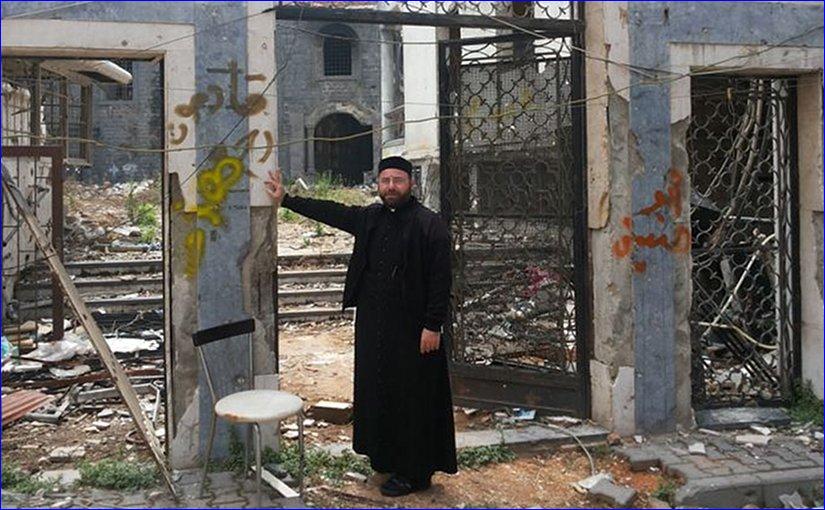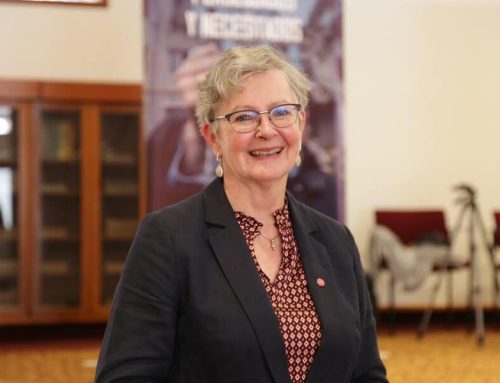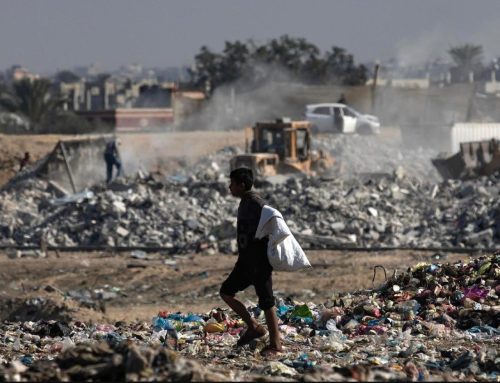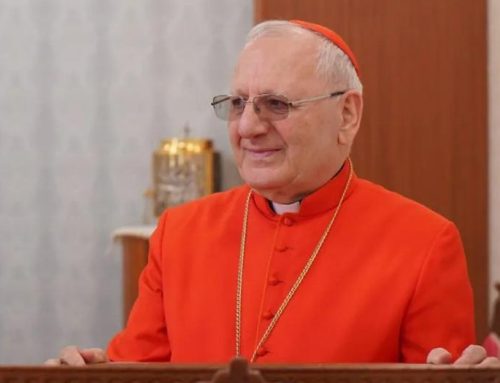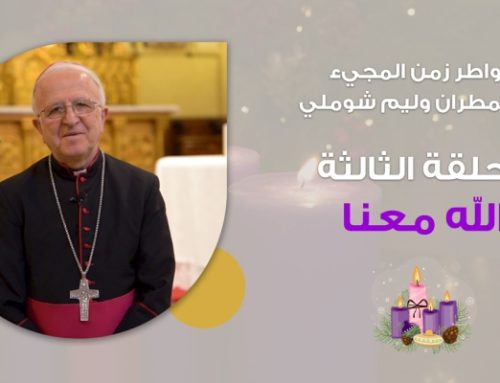At the beginning of this year, the Christian international network Open Doors presented data on the oppression, discrimination and persecution of Christians around the world. It was announced that between the fall of 2021 and the fall of 2022, 5,621 Christians were killed, 4,542 were arrested, and 5,259 were kidnapped.
As many as 2,110 churches and church buildings were the target of violence. More than 360 million Christians were exposed to high levels of persecution and discrimination. Because of their faith, almost every seventh Christian in the world was persecuted, every fifth in Africa and 40% of Christians in Asia.
It is especially difficult for Christians in the Middle East — the region where Jesus was born, preached, died and resurrected as the Bible teaches. For Christians in the Middle East, the Christmas season is not “the most beautiful time of the year” as in the popular Andy Williams song. On the contrary, after two millennia of Christian presence, the Middle East is slowly but surely being cleansed of Christians. The international Christian organization Aid to the Church in Need (ACN) presented in its report at the end of 2022 terrible and devastating data about the state of Christianity in that region. Some of the oldest Christian communities in the world are in danger of disappearing as a result of mass emigration. The bishop of the Chaldean Catholic Church in Baghdad declared that the exodus of Christians was an unprecedented event. It is striking that the Western powers, which have a majority Christian population, are not concerned at all by such a disaster. Pope Francis raised the issue in his recent meeting with French President Emmanuel Macron, urging him to make greater efforts to preserve the Christian presence in the region and stop the exodus of Christians that has reached alarming levels.
In 2010, Christians made up 6% of the population in the region — a number roughly equal to the situation at the beginning of the 16th century when the expansion of the Ottoman Empire took place. In the last decade after the outbreak of the Arab Spring in 2011, Christian communities in many Muslim countries experienced persecution, massacres and even genocide. The number of Christians has decreased due to wars, ethnic cleansing and crimes committed by members of ISIL and related terrorist groups. Many Christian communities have been decimated. Currently, there are 22 Christian communities in the Middle East: eight Protestant, seven Catholic and seven Orthodox churches. The vast majority of these Christians are members of indigenous Christian communities such as the Maronite, Melkite (Greek), Armenian, Coptic, Chaldean, and Assyrian churches. It is estimated that Christians currently make up about 4% of the population of the region — 15 million believers. This is a drastic drop compared to the beginning of the 20th century, when there were slightly more than 20% Christians. If there had been no discrimination, violent persecutions and massacres by the states and Islamist groups there, there is no doubt that the number of Christians would not have remained at 20% but would have grown.
Although for different reasons (Islamic fundamentalism, economic difficulties, wars), the exodus of Christians is happening in most countries of the region, especially in Iraq, Syria, Palestine, Lebanon and the states of the Persian Gulf. In the last two years, more than 5,000 Christians have gone (including those from Jerusalem) mainly to Europe, the United States and Canada. In 2011, there were 1.7 million Christians in Syria (10% of the population). Today there are less than 450,000 of them (2% of the population). In Aleppo alone, the Christian population has shrunk from 360,000 in 2012 to 25,000 today. In 2003, there were 1.5 million Christians in Iraq. Today there are less than 120,000 of them. Syria and Iraq are home to numerous Christian communities. In Iraq, with the rise of ISIL, at least 50,000 Christians found refuge in Lebanon, but now there are only a few hundred, as most have left the region for good and gone to North America or Australia. And many leave from the relatively safe haven provided by Jordan. Coptic Orthodox Christians, an autochthonous community originating from the ancient Pharaonic civilization, were persecuted in Egypt.
The only country in the region with a growing Christian community is Israel, where the Christian population grew by 1.4% in 2020. Somewhat paradoxically, since Jews do not recognize Jesus, Christians in Israel benefit from the only functioning democracy in the Middle East because their religious freedom as much as guaranteed. According to the Israel Bureau of Statistics from December 2021, 84% of Christians surveyed said they were satisfied with life in Israel. This shows that when a democratic state is functioning then minority communities can profit despite the fact that they are minorities. However, one should be objective and recognize that in Israel, Christians suffer just as much as Muslims and other non-Judaists and are subjected to discrimination. Even the hometown of Jesus Christ, Bethlehem, is not immune to the exodus. In the past 100 years, the percentage of Christians in the population of Bethlehem has dropped from 84% to about 20% today. In addition to the Israeli government, the Palestinians also began to attack churches in Bethlehem. The first incident happened on October 28 last year when a group of Palestinians threw stones at a church. In the West Bank and Gaza, the percentage of Christians in the population fell from 11% in 1922 to 1.5% in 2017 and has fallen below 1% in recent years. During 2022, more than 5,000 Christians emigrated from the West Bank.
In the former Constantinople (Constantinople) of modern Istanbul, the Church of the Holy Wisdom (Hagia Sophia), which was the seat of Eastern Orthodoxy for more than a thousand years, stands as a living reminder of the persecution and discrimination of Christians in the past and present. In 2020, Turkey’s autocratic and pro-Islamist President Recep Erdogan turned it back into a mosque after being a museum for almost a century. Although Istanbul is full of mosques (there are more than three thousand of them) and many of them are gaping empty, Hagia Sophia has been converted into a mosque. Why? You don’t need to be a sage to understand Erdogan’s message: “Christian Turks are foreigners in their own country”. This is unfair since the Turks of the Christian faith built Turkey for centuries and it is also one of the cradles of Christianity.
Although in 2017 ISIL was defeated in the wars in Syria and Iraq, Islamic fundamentalism was not defeated while countries like Saudi Arabia and Qatar have a Wahhabi order. A potential renewal of jihad in the region could harm Christianity even more. The main problem is not that there are fewer and fewer Christians, but that their self-confidence has been undermined due to a lack of security. Iraq is the only Middle Eastern country that has launched a major reconstruction program to help the return of exiled Christians. Reconstruction of Christian towns and villages, homes, schools, churches and other public facilities was undertaken with the support of the government. However, few returned. Fears of a resurgence of jihad have reduced trust in the Iraqi state, and leaving has become an acceptable solution.
The legal political and social order in many Arab countries is a source of discrimination. As such, the system is hostile towards all non-Muslims, especially Christians. Christians are often not second or third but tenth class citizens, they suffer discrimination in the educational system, in the workplace, the community tries to ostracize them. Daily discrimination has forced many followers of Christ to flee to countries where they can live without fear for their lives because of belonging to their religion. Of course, Middle Eastern Christians should not emigrate in order to freely practice their faith and live in accordance with their culture and traditions. They should be able to practice their religion freely in their home countries.
Cyprus has the largest Christian population in the region (78%), while only two Arab countries give Christians a special status: Jordan and Lebanon. King Abdullah II of Jordan. shows great concern for the Christians of the Middle East. Last September, during his speech at the 77th session of the UN General Assembly, he expressed his anger at their poor position. He criticized Israel for abusing Christians and members of other minority faiths in the city of Jerusalem, which, along with Bethlehem, is considered the cradle of Christianity. Back in 2013, speaking at a two-day conference on the challenges facing Arab Christians, Abdullah II. stated that protecting the rights of Christians “is not a matter of decency, but a duty”. This is because “Arab Christians played a key role in building Arab society and defending our nation… We have a duty to defend the Arab identity of Jerusalem and protect its Islamic and Christian holy places.” Statements of Abdullah II. against the abuse of Middle Eastern Christians were the only ones that could be heard recently from prominent statesmen. Not only the Arab countries and Israel are silent (which is somewhat logical since they are the oppressors), but also the so-called the Western Christian world, which is not very logical because of the Christian majority in these countries. At that last UN session, there was not even a word of support from US President Joe Biden, the most powerful leader of a Christian government in the world or from Europe, where Christianity found its strongest foothold.
“Christian” authorities in the West (in the countries of North America and the European Union, who preach a deep commitment to human rights in their countries and around the world), should strongly support the right of Christians of the Middle East to live in peace and security as confirmed by Article 18 of General declaration on human rights from 1948: “Everyone has the right to freedom of thought, conscience and religion; that right includes the freedom to change one’s religion or belief and the freedom to manifest one’s religion or belief individually or in community with others, publicly or privately, through teaching, worship, practice and rituals.”
It is the Western world, which is based on Christianity, that is expected to protect its brothers in faith in the dysfunctional and unstable states of the Middle East. Who is more called to do this than countries that publicly proclaim democracy, freedom and human rights? However, the West does not do this, so it should not be surprising that the protection of Christians in the world is not included in the current development plans, such as, for example, the 17 sustainable development goals of the UN until 2030. These goals do not mention any religion at all, which means that the global creators of sustainable development believe that religion is not really (that) important. In such a bad situation, the Christians of the Middle East cannot expect the local governments there to work on improving the status of their situation when even the powerful governments of the “Christian world” are not doing anything concrete about it.
Western politicians who consider themselves Christians, and most of them are in positions of power, should strongly advocate the rights of Christians in the Middle East, because if the followers of Jesus disappear there in the cradle of Christianity, there is no doubt that Christianity will continue to lose strength in the West as well. Christianity is based on revelations, events and miracles that did not take place in New York, Paris or Rome, but in the Middle East, specifically Holy Land (today’s Israel and Palestine). Western governments should demand, for example, from the Israeli authorities a more significant restoration of the Christian presence in Jerusalem and Bethlehem, and of course an end to all persecutions. Biblical historical events should be respected in order to show that the history of Christians is a valuable part of the history not only of the Middle East but also of humanity as a whole. Yet the Bible is the most influential book of all time.
In order to protect vulnerable Christians in practice, it is very important that the Arab world understands that Christianity is an indispensable component of their identity, culture, history and present. If they really wanted to, Western diplomats and statesmen could point this out to their partners in the region, and they could also force them to protect church communities through the application of sanctions on, for example, oil and gas exports or through the denial of military aid. However, apart from the declarative reference to Christianity, it is evident that most Western politicians do not care about “their” religion, but only about power and money. Nevertheless, the problem should be pointed out and some progress should happen in the future.

